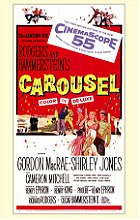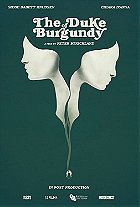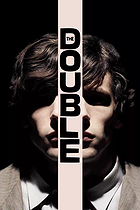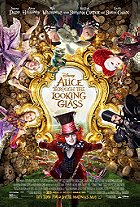Call me crazy, but I almost miss the cotton candy fluff of other Rodgers and Hammerstein musicals if the alternative is Carousel which presents domestic abuse in the most questionable way imaginable. After all, the lousy main character gets semi-redeemed while his widow and orphaned child spout out that if someone loves you enough that being hit by them doesn’t hurt at all. Cue the heart-swelling music and fade out as we walk out with a knotted stomach when we’re clearly supposed to feel euphoria.
I have no aversion to dark musicals or musicals with thornier subject matter, I absolutely adore the work of Stephen Sondheim after all, but Carousel just doesn’t work for me from top to bottom. Maybe it’s better on the stage, but there’s something deeply “off” about the entire film. A majority of it is structured as a flashback, not a problem, but we never feel the weight or reality of the romance between these characters, major problem. Even worse is how the female lead is stuck in long-suffering, supportive mode with no other characteristics. She gets put through mounds of abuse and personal turmoil, but remains wholesome and pure throughout. The sense of ick is strong here.
Where Carousel excels is through its songs, most obviously in the evergreen “You’ll Never Walk Alone.” Shirley Jones’ powerful, emotionally demonstrative voice nails the romanticism and emotional longing in each of her songs, and she’s wonderfully delicate and pretty throughout, which is about all the film asks from her. In contrast, Gordon MacRae has more to do, and rich power that threatens to upend the film routinely. He’s giving a more ornate and realistic performance than the film’s artifice and studio-bound aesthetics can handle.
Perhaps that’s the central conflict of Carousel, a duality of pervading culture tone with a sensibility that is in stark contrast to it. There’s an emotional unease and darkness to Carousel, but it’s presented in glossy, candy-colored veneers like any number of its brethren. Perhaps it’s a noble failure of translation, look at how The King and I from the same year managed its melancholy, or perhaps it’s a consistent scarcity of cinematic ideas, one of the best moments is an extended ballet on the beach that announces itself as something completely different from the rest of the film by its sheer audacity.
Carousel is dour and sour no matter how heart-tugging the score gets or how comically cornball moments like “A Real Nice Clambake” are, that tone and feeling is prevalent. Same with knowing that our leading man is dead, so his eventual death scene is robbed of some of its power as we know he’s coming back down to check on things and try to make them right. It’s hard to engender sympathy for these characters, and Carousel beats us down in demanding that we do instead of earning it.
What keeps it hovering as an average movie musical is the strength of its score and two leading performances. Take away either of these elements and the entire thing would implode. As it remains, it’s an uneasy balancing act that shows its strain repeatedly and much of it doesn’t work.
 Login
Login
 Home
Home 95 Lists
95 Lists 1531 Reviews
1531 Reviews Collections
Collections
 0 comments,
0 comments, 







